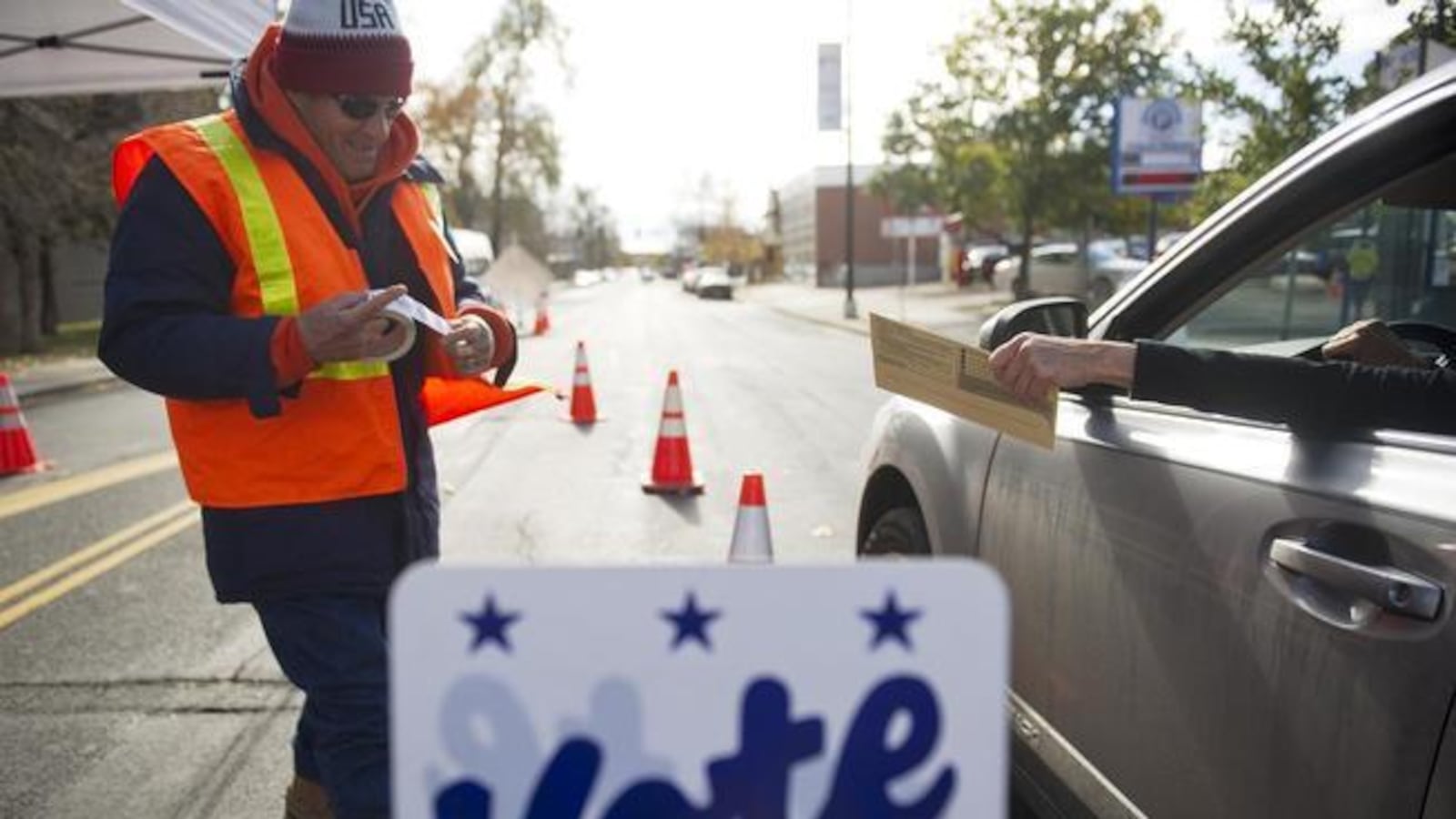A group that spent more than $400,000 two years ago to elect candidates who would maintain Denver’s specific brand of education reform won’t be participating in this year’s school board elections, the group’s director said.
Candidates who oppose such reform policies — which have included closing low-performing schools and replicating high-performing ones, including charter schools — are trying to “flip the board” this November. But rather than dig in, Jen Walmer, the head of Democrats for Education Reform’s Colorado chapter, said the group is focused on statewide issues and won’t deploy money in the 2019 Denver school board race.
“Denver remains incredibly important to us,” Walmer said. But she said DFER is focusing “on the progress we have been able to make in the legislature.”
Democrats in Colorado hold the governor’s office, the House, and the Senate. This summer, Walmer said DFER plans to follow ongoing legislative debates about school finance and school safety, support a ballot measure that would let state government keep more revenue for education, and work to protect Democratic state lawmakers from recall threats.
Backlash against DFER has been growing among Democrats who see school closure and charter schools, which are publicly funded but independently run, as aligned with the policies of Republican President Trump and his education secretary, Betsy DeVos.
Last year, delegates at the Colorado Democratic state assembly voted to call for DFER to stop using “Democrats” in its name — a largely symbolic vote that illustrated a growing divide in the party on education policy. But despite that divide, legislative efforts to roll back state-level reform policies failed to gain traction this year.
November’s school board election will determine how far the tide has turned in Denver. In 2017, two union-backed candidates won election for the first time since 2011, disrupting what had been a 7-0 majority in favor of reform. This year, three of the seven seats are up for grabs. A coalition of community groups is working to elect at least two candidates who want to change the direction of Denver Public Schools, giving those who hold that view a majority on the board.
Walmer said the backlash was not a major factor in DFER’s decision to sit out this year’s Denver school board election — though she said the divisiveness played a small part.
“School board elections should always be about the people running to serve,” she said. “Certainly, over the last several cycles, it became much more about entity versus entity.
“We believe Denver voters are best off when they can hear from candidates and make decisions and not have to have a ‘Which camp are you in?’ conversation.”
No incumbents are running, and none of the candidates thus far are calling themselves “reformers.” In fact, most are aligning themselves with those who want to flip the board. A smaller number are supportive of charter schools and have said school closure shouldn’t be “taken off the table” as an option when schools continue to struggle.
It’s not clear how DFER’s decision will affect November’s election. In 2017, seven independent expenditure committees spent money to influence Denver’s school board races. There is no cap on how much such committees can spend, but they cannot coordinate with candidates.
A DFER-affiliated committee called Raising Colorado spent more than the others,
including committees associated with the state and local teachers unions, which have historically backed candidates opposed to reform policies.
Raising Colorado’s money came from Education Reform Now Advocacy, a New York-based political nonprofit affiliated with Democrats for Education Reform. But campaign finance rules don’t require Education Reform Now Advocacy to disclose its donors.
It’s possible that those donors will donate to another independent expenditure committee participating in this year’s school board election — or give to the candidates directly. It’s also possible they won’t, which could give anti-reform groups a financial advantage.
Thus far, only two independent expenditure committees have given notice to the Colorado Secretary of State’s office that they plan to participate in this year’s Denver school board election. They are Better Schools for a Stronger Colorado, which is affiliated with Stand for Children, an organization that has supported reform candidates in past elections, and a new group called Revolutionaries Organizing Communities for Kids.
Committees must inform the secretary of state’s office of their participation and publicly report their donations and expenditures more frequently leading up to the election.
There is no deadline for independent expenditure committees to jump into the race, said Serena Woods, spokesperson for the secretary of state’s office, though the office did send a letter earlier this year asking committees to alert the office of their intentions by April 26.

